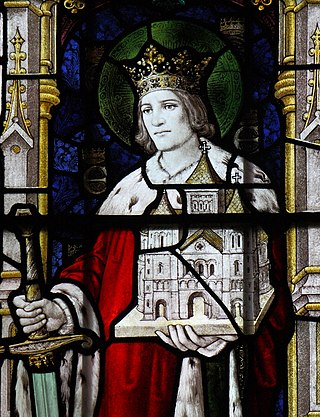See also
Name list
This page or section lists people that share the same given name or the same family name. If an internal link led you here, you may wish to change that link to point directly to the intended article.
Mano is both a given name and a surname. Notable people with the name include:
Silva is a surname in Portuguese-speaking countries, such as Portugal and Brazil. It is derived from the Latin word silva, meaning "forest" or "woodland". It is the family name of the House of Silva.
Peres is a Portuguese, Galician, and Sephardic-Jewish surname. Its Spanish variant is Pérez.

The name Edwin means "rich friend". It comes from the Old English elements "ead" and "ƿine" (friend). The original Anglo-Saxon form is Eadƿine, which is also found for Anglo-Saxon figures.
Mathew is a masculine given name and a variant of Matthew. It is also used as a surname.
Rodrigo is a Spanish, Portuguese and Italian name derived from the Germanic name Roderick, given specifically in reference to either King Roderic, the last Visigothic ruler or to Saint Roderick, one of the Martyrs of Córdoba . The modern given name has the short forms Ruy, Rui, and in Galician Roi.
Fernando is a Spanish and Portuguese given name and a surname common in Spain, Portugal, Italy, France, Switzerland, and former Spanish or Portuguese colonies in Latin America, Africa, the Philippines, India, and Sri Lanka. It is equivalent to the Germanic given name Ferdinand, with an original meaning of "adventurous, bold journey".
Mano may refer to:

Pereira is a surname in the Portuguese and Galician languages, well known and quite common, mostly in Portugal, the Galicia region of Spain, Brazil, other regions of the former Portuguese Empire, among Galician descendants in Spanish-speaking Latin America and by adoption also common among Sephardic Jews of Portuguese origin throughout the Sephardic Jewish diaspora. Currently, it is one of the most common surnames in South America and Europe.

Justin is a masculine given name of Latin origin. It is the anglicized form of the Latin given name Justinus, a derivative of Justus, meaning "just", "fair", or "righteous". Justinus was the name borne by various early saints, notably a 2nd-century Christian apologist and a boy martyr of the 3rd century. The name is also related to the similar Latin name Justinian. As an English name, Justin is common particularly in the English-speaking world starting in the latter half of the 20th century.

Joseph is a common male given name, derived from the Hebrew Yosef. "Joseph" is used, along with "Josef", mostly in English, French and partially German languages. This spelling is also found as a variant in the languages of the modern-day Nordic countries. In Portuguese and Spanish, the name is "José". In Arabic, including in the Quran, the name is spelled يوسف, Yūsuf. In Persian, the name is Yousef.

Marcus is a masculine given name of Ancient Roman pre-Christian origin derived either from Etruscan Marce of unknown meaning or referring to the god Mars. Mars was identified as the Roman god of War.
Douglas is a Scottish masculine given name which originated from the surname Douglas. Although today the name is almost exclusively given to boys, it was used as a girl's name in the seventeenth and eighteenth centuries in the north of England. The Scottish surname Douglas was borne by one of the most powerful families of the Kingdom of Scotland. It has sometimes been stated that the given name is connected with the given name Dougal, although it is more likely derived from the surname already mentioned.

Benjamin is a popular given name for males, derived from Hebrew בִּנְיָמִין, Bīnyāmīn, translating as "son of the right [hand]" in both Hebrew and Arabic languages, although in the Samaritan Pentateuch the name appears as "Binyaamem": "son of my days".
Victor is both a given name and a surname. It is Latin in origin meaning winner or conqueror.
Alex is a given name. It can refer to a shortened version of Alexander, Alexandra, Alexis.
Dias is a common surname in the Portuguese language, and therefore in Portugal and Brazil. It is cognate to the Spanish language surname Díaz.
da Fonseca is a surname of Portuguese and later also Spanish origin. A feudal lordship name from a place named for a spring that dried up during the summer months, it comes from Latin fons sicca, meaning "dry well". The name is also common among Sephardic Jews.

Anton is a Belarusian, Bulgarian, Greek, Catalan, Croatian, Danish, Dutch, Estonian, Finnish, German, Macedonian, Norwegian, Romanian, Russian, Slovak, Slovene, Swedish, and Ukrainian given name, from Latin Antonius.
Rita is a female given name, often a name in its own right, but mostly a shortened version of Margarita. The feast day of Rita is generally celebrated on May 22 in honor of Saint Rita of Cascia. The following are notable people with the given name Rita.
Vernon is a masculine given name which may refer to: